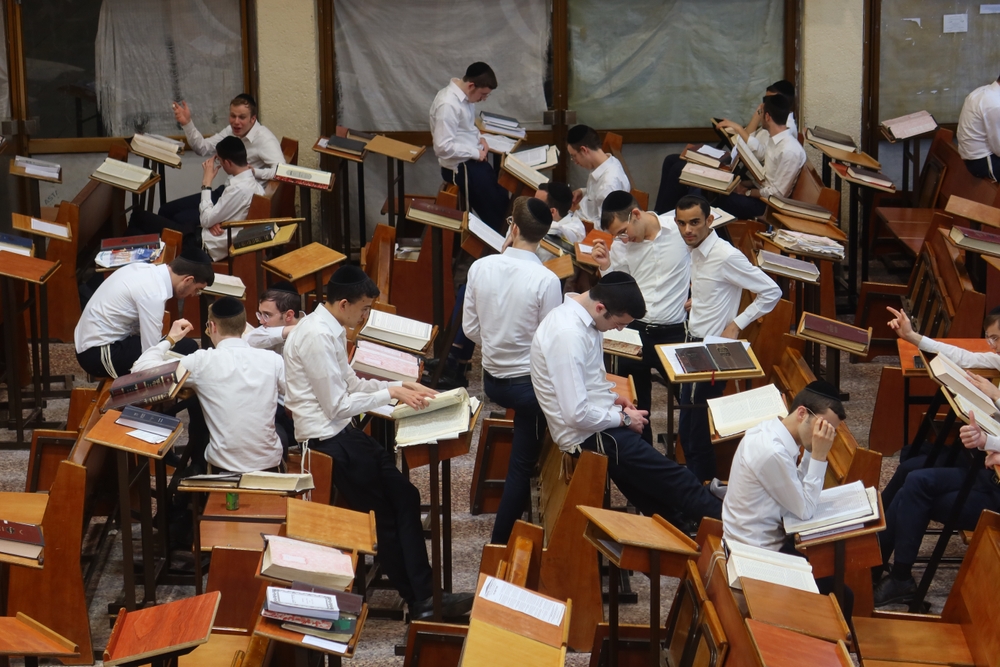Moshe’s Pleas
Our parshah, Parshat Va’etchanan begins with one of the most moving and personal episodes in the Torah. Moshe Rabbeinu (Moses), the greatest of all prophets, turns to Hashem (God) in heartfelt prayer, pleading for the opportunity to enter Israel. The word the Torah uses—va’etchanan, “I implored”—is rich with meaning. The Ba’al HaTurim notes that va’etchanan has the same numerical value (gematria) as the word shirah—song (515). What is the connection between a desperate plea and a song?
Rashi (Brachot 4b) teaches that before asking for our needs, a person should first draw close to Hashem through praise. Only afterward should he present his requests. This is the ideal structure of prayer. Chazal (our Sages) followed this principle when establishing the structure of the Amidah prayer (Shemoneh Esrei). The first three brachot (blessings) are dedicated entirely to glorifying and praising Hashem. Only after this do we move on to the section of personal requests.
Opening the Gates
The Tiferet Shlomo explains that it is through shirah—songs of praise—that we open the gates of Heaven. Once those gates are opened, we are in a position to ask for whatever we need (Tiferet Shlomo, Parashat Ki Tisa). Similarly, the Seder HaYom explains why Chazal embedded so many requests in the final brachah of Sim Shalom (Grant Peace). Even though the last three brachot of the Amidah are generally not designated for requests, the Sim Shalom follows immediately after Modim, our declaration of gratitude. Gratitude opens gates—and once those gates are open, we can pour out our hearts to Hashem.
From this we learn a powerful truth: before turning to Hashem for a specific request, we should first stop to praise Him, to thank Him for all the good we already have. It’s not just good manners—it’s a spiritual key.
The Miracle in the Storm
One remarkable story brings this idea to life.
Rabbi Yitzchak David Grossman, grandfather of the esteemed Chief Rabbi of Migdal HaEmek, was once returning by ship from Poland to Israel. The journey was uneventful—until tragedy nearly struck. In the middle of the sea, the small ship on which he was traveling collided with a much larger vessel. Chaos broke out. The larger ship’s crew, unfriendly and hostile, made a quick and cruel decision: they would only rescue the non-Jewish passengers. The Jewish travelers, they declared, would remain aboard the small ship—destined, it seemed, to sink beneath the waves.
Panic swept through the passengers. Cries filled the air. People clutched one another in fear. But amidst the chaos, one figure stood out—calm, focused, uplifted. It was Rav Grossman.
He quietly opened his siddur. It was Friday afternoon, moments before Shabbat. As the sea roared around them, Rabbi Grossman began to recite Kabbalat Shabbat—the sacred prayers welcoming the holy day—with a voice full of sweetness, serenity, and unwavering faith.
And then, as if completely unshaken by the impending danger, he began to sing. He rose to his feet and danced. Yes—danced! He sang the words of Lecha Dodi (Come, My Beloved) with heartfelt emotion, his eyes uplifted, his soul bound to Heaven. His feet moved with joy and gratitude—for the Shabbat, for Hashem’s kindness, for life itself. Others looked on, stunned.
His spirit was infectious. Some began to cry. Others joined in the song. Faith lit up that doomed ship like a flame in the night.
And then—miraculously—the small ship did not sink. Against all odds, it stayed afloat. It sailed safely to the shores of Israel. However, the bigger ship wasn’t as fortunate and it capsized. (Adapted from Living Legend, p. 222)
Open with song—and praise will unlock Heaven’s gates for your plea to step through.
By Rabbi Daniel Shasha, author of “Living Appreciation”


